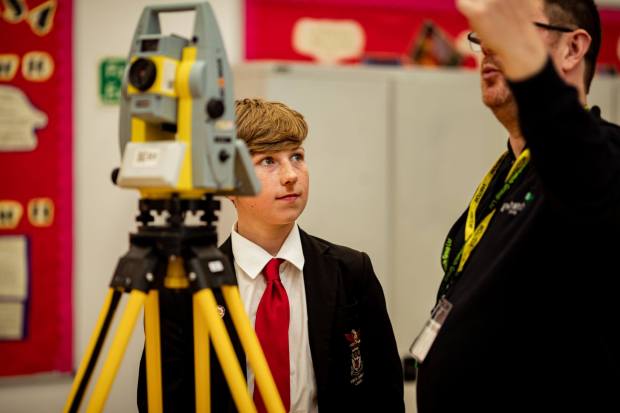Top Stories
Over 50% of Brits Now in Jobs They Never Imagined, Study Reveals

URGENT UPDATE: A startling new study reveals that over 50% of adults in the UK are working in careers vastly different from those they envisioned as children. The research, conducted by the charity program Inspiring the Future, surveyed 2,000 people across the UK and shows that a staggering 72% did not understand the range of job opportunities available during their youth.
The findings highlight a critical gap in career awareness and guidance. Nearly 68% of respondents admitted they had never even heard of their current job while still in school. Furthermore, 44% expressed a desire for more information about diverse career options, indicating a significant disconnect in career education.
Parents are increasingly concerned about their children’s futures. 57% of mothers and fathers fear that their kids lack access to vital job information and guidance. This sentiment underscores the urgency for improved career advice in schools, which many feel is insufficient. In fact, nearly 48% of adults surveyed rated the career guidance they received as poor or non-existent.
According to Nick Chambers, CEO of Inspiring the Future, “When children are asked what they want to do when they grow up, most focus on traditional roles like teacher, doctor, or footballer. However, very few will actually pursue these paths, often ending up in fields they didn’t even know existed.”
The survey also revealed a disconnect between parents and children regarding job roles. For example, one child confidently described his father’s job as “telling people how to build a house,” when he is actually a mechanical engineer. This highlights the need for greater parental involvement in discussing career options, as 31% of parents feel their children are unaware of the variety of career opportunities available.
The research illustrates the importance of exposing young people to a wider array of jobs to combat ingrained stereotypes based on gender, ethnicity, or socio-economic background. Chambers emphasized, “One of the most positive things we can do for the next generation is to open their eyes to the sheer variety of jobs and opportunities available.”
While many children still dream of traditional careers—like doctor, nurse, or scientist—this study reveals that dreams often do not align with reality. Alarmingly, one in eight respondents admitted they encountered too few opportunities to follow their imagined career paths.
With many adults wishing they had received better guidance, now is the time for educators and parents to take action. As the job market continues to evolve, it is crucial to ensure that the next generation is well-informed and prepared for future employment.
Next Steps: As this research gains attention, expect increased advocacy for enhanced career education initiatives in schools. Parents are encouraged to engage their children in discussions about diverse career options to help them explore their strengths and passions.
The need for reform in career guidance and education is more pressing than ever. Stay tuned for updates on how institutions respond to these alarming statistics and work to provide future generations with the tools they need to succeed.
-

 Top Stories3 months ago
Top Stories3 months agoTributes Surge for 9-Year-Old Leon Briody After Cancer Battle
-

 Entertainment4 months ago
Entertainment4 months agoAimee Osbourne Joins Family for Emotional Tribute to Ozzy
-

 Politics4 months ago
Politics4 months agoDanny Healy-Rae Considers Complaint After Altercation with Garda
-

 Top Stories4 months ago
Top Stories4 months agoIreland Enjoys Summer Heat as Hurricane Erin Approaches Atlantic
-

 World5 months ago
World5 months agoHawaii Commemorates 80 Years Since Hiroshima Bombing with Ceremony
-

 Top Stories3 months ago
Top Stories3 months agoNewcastle West Woman Patricia Foley Found Safe After Urgent Search
-

 Top Stories5 months ago
Top Stories5 months agoFianna Fáil TDs Urgently Consider Maire Geoghegan-Quinn for Presidency
-

 World5 months ago
World5 months agoCouple Convicted of Murdering Two-Year-Old Grandson in Wales
-

 World5 months ago
World5 months agoGaza Aid Distribution Tragedy: 20 Killed Amid Ongoing Violence
-

 World5 months ago
World5 months agoAristocrat Constance Marten and Partner Convicted of Infant Murder
-

 Top Stories4 months ago
Top Stories4 months agoClimbing Errigal: A Must-Do Summer Adventure in Donegal
-

 Top Stories4 months ago
Top Stories4 months agoHike Donegal’s Errigal Mountain NOW for Unforgettable Summer Views









